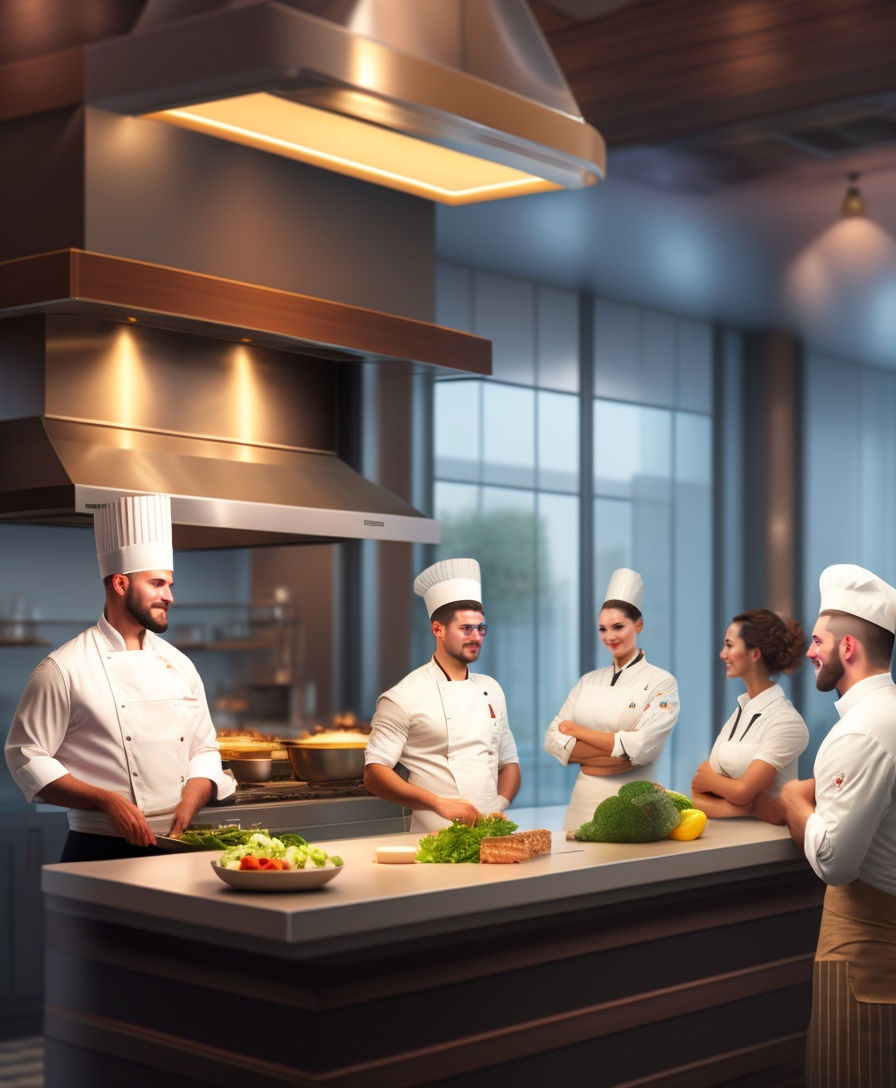Embarking on a Gamified Learning Journey: Revolutionizing Staff Training in Restaurants
- Collaborate
- Jan 25, 2024
- 3 min read
Welcome to a culinary adventure where learning becomes an immersive and enjoyable experience. In this blog, let's dive deep into the realm of gamified staff training, exploring how the fusion of gaming elements and education can transform restaurant teams. Join me on a journey where fun meets functionality, creating an environment where learning is not just a task but a delightful pursuit.

The Playful Prelude: Setting the Stage for Learning
Commence our exploration with a personal prelude, reflecting on the transformative power of play in the learning process. Share anecdotes of instances where playful approaches to training left a lasting impact, emphasizing the importance of creating a positive and engaging learning environment for restaurant teams.
Personal Touch: Introduce the topic through personal experiences, emphasizing the impact of gamified learning in your own culinary journey.
Game Elements in Training: Turning Tasks into Challenges
Delve into the core of gamified training by dissecting the game elements infused into the learning process. Explore how traditional training tasks can be reframed as challenges, incorporating elements like points, levels, and rewards. Illustrate how this shift in perspective transforms routine activities into exciting opportunities for skill development.
Challenges and Rewards: Share specific examples of how incorporating challenges and rewards can elevate the learning experience, making it more enjoyable and motivating for staff.
Storytelling in Training: Crafting Narratives for Engagement
Unearth the art of storytelling as a powerful tool in gamified training. Showcase how weaving narratives around training modules can captivate the attention of restaurant teams. Illustrate instances where a storyline transforms mundane information into a captivating journey, enhancing retention and understanding.
Story-Driven Learning: Provide examples of successful story-driven training modules, emphasizing the impact of narratives on staff engagement and comprehension.
Role-Playing and Simulation: Learning by Doing
Embark on a discussion about the effectiveness of role-playing and simulations in gamified training. Explore how staff members can step into different roles and scenarios, simulating real-world situations to enhance their decision-making and problem-solving skills. Share success stories where immersive simulations led to tangible improvements in staff performance.
Real-World Simulations: Discuss specific examples where role-playing and simulations were implemented, highlighting the practical skills gained through these experiences.
Team-Based Challenges: Fostering Collaboration
Explore the concept of team-based challenges within the gamified training landscape. Showcase how collaborative learning experiences create a sense of camaraderie among staff members. Share stories of successful team challenges that not only fostered healthy competition but also strengthened the bonds within the restaurant team.
Collaborative Success Stories: Narrate instances where team-based challenges resulted in enhanced teamwork and a positive shift in the work culture.
Instant Feedback and Recognition: Motivating Through Acknowledgment
Delve into the importance of instant feedback and recognition as motivational tools in gamified learning. Discuss how timely acknowledgment of achievements, whether big or small, contributes to a positive learning experience. Highlight instances where a culture of recognition led to increased staff morale and a sense of accomplishment.
Acknowledgment Strategies: Share effective strategies for providing instant feedback and recognition within the gamified training framework.
Continuous Improvement through Gamification: Metrics and Adaptability
Conclude our exploration by emphasizing the role of metrics and adaptability in continuous improvement through gamified training. Discuss how tracking performance metrics provides valuable insights into staff development areas. Showcase examples of adaptability in training programs, ensuring they evolve with the changing needs of the restaurant and its team.
Metric-Driven Adaptation: Provide insights into how metrics are utilized for ongoing improvement and highlight instances where adaptability led to more effective training outcomes.
Key Takeaways:
Positive Learning Environment: Create a positive and engaging learning environment by infusing playfulness into training programs.
Game Elements Integration: Transform routine tasks into exciting challenges by incorporating game elements like points, levels, and rewards.
Storytelling Impact: Use storytelling to craft engaging narratives around training modules, enhancing staff engagement and comprehension.
Role-Playing and Simulations: Enhance decision-making and problem-solving skills through immersive role-playing and simulations.
Team Collaboration: Foster collaboration and teamwork through team-based challenges, promoting a positive work culture.
Instant Feedback and Recognition: Motivate staff by providing timely acknowledgment and recognition for their achievements.
Continuous Improvement: Utilize metrics for ongoing improvement and ensure adaptability in training programs to meet evolving needs.

Comments